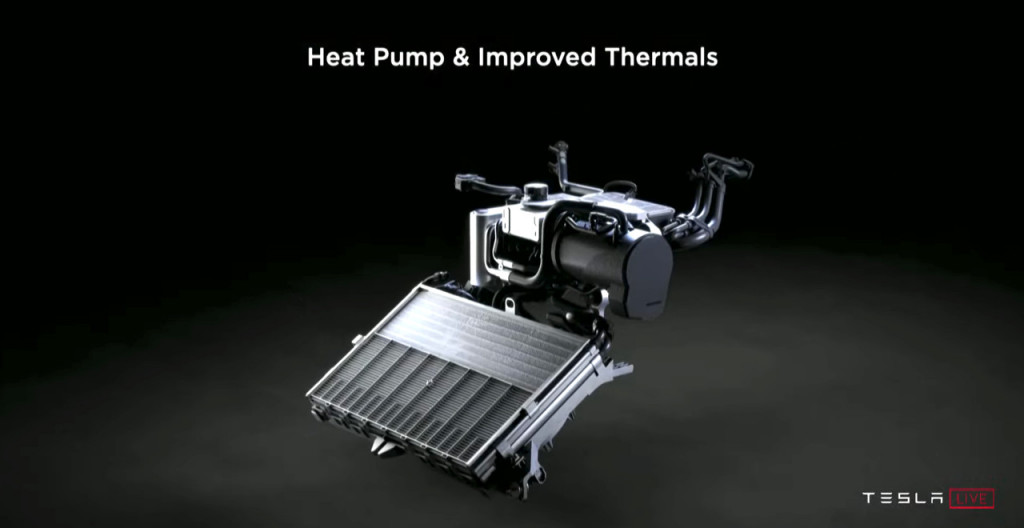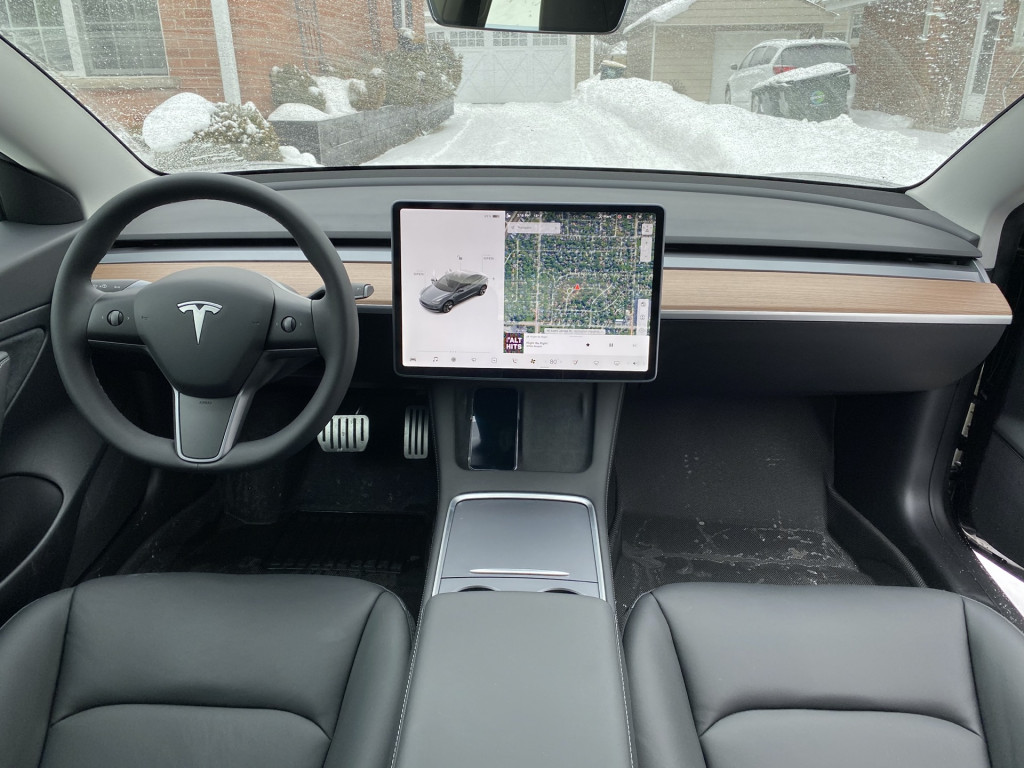Tesla has issued a recall for 26,681 vehicles from the 2020 through 2022 model years over an issue relating to an improperly operating heat-pump valve—an issue that can be fixed through an over-the-air update.
Recall documents filed by Tesla explain that the issue “may trap refrigerant inside the evaporator and may deplete the refrigerant from the active components in the system.” That may result in a loss of cabin heating, particularly in temperatures of -10 degrees C and colder, it explains, although the windshield defroster system will continue to operate.
The recall affects the 2021-2022 Tesla Model 3, 2021-2022 Model S, 2021-2022 Model X, and 2020-2022 Model Y.
2021 Tesla Model 3
Tesla noted that even in such a failure, the blower motor will still be operational.
The automaker explains that in vehicles with certain firmware updates, the heat pump’s Electronic Expansion Valve doesn’t stay closed, resulting in a depletion of refrigerant and a “fail-safe compressor stoppage.”
A federal recall is initiated because the vehicles failed to comply with federal standards for windshield defrosting and defogging, although there’s no service visit required here—much easier logistically than the recall over camera-cable harnesses and frunk latches that the company announced last month.
Tesla reports that it already reintroduced the proper software command to keep the valve closed with firmware released on January 15 and later and included in over-the-air updates. Nevertheless, Tesla will be mailing out notification letters to affected owners starting today—again leading to some potential questions over what a safety recall should be in a future of over-the-air updates over the operational nuances of components.

Tesla Model S Plaid thermal and heat pump
Heat pumps themselves represent a turnaround in Tesla’s strategy. It insisted for years that they weren’t necessary given the way it had designed its heating and thermal management systems. But the inclusion of one, starting with the Model Y in 2020, can have a huge impact in real-world efficiency over longer drives in cooler weather.

buy lasuna pills for sale – cheap lasuna generic where to buy himcolin without a prescription
cost besivance – buy generic sildamax for sale purchase sildamax pills
gabapentin 600mg pills – neurontin 800mg us buy sulfasalazine 500mg pills
buy cheap probenecid – order probenecid sale carbamazepine 200mg pill
celebrex online – flavoxate without prescription brand indomethacin 75mg
cost colospa 135mg – order generic cilostazol 100mg cilostazol 100mg sale
order cambia pills – order aspirin online aspirin 75mg ca
buy mestinon 60mg for sale – pyridostigmine 60 mg over the counter order azathioprine 50mg sale
baclofen 25mg over the counter – baclofen 25mg pills how to buy piroxicam
order meloxicam 7.5mg online cheap – rizatriptan buy online purchase toradol without prescription
buy trihexyphenidyl pills – buy trihexyphenidyl order emulgel sale
cefdinir over the counter – cleocin brand cleocin without prescription
isotretinoin 40mg generic – deltasone 10mg cheap purchase deltasone online
purchase permethrin online – tretinoin gel generic buy generic tretinoin for sale
purchase betamethasone online cheap – adapalene generic benoquin without prescription
where can i buy metronidazole – cenforce 50mg cost buy cenforce medication
augmentin 1000mg pills – buy levothroid tablets buy levoxyl pill
buy generic clindamycin online – cleocin 300mg for sale indomethacin 75mg sale
cozaar 25mg without prescription – keflex 125mg cost buy keflex medication
buy eurax cream – order aczone for sale buy cheap generic aczone
order modafinil 100mg generic – phenergan generic buy meloset 3mg sale
zyban 150 mg cost – orlistat 120mg usa buy shuddha guggulu
order xeloda generic – danazol 100 mg cost danazol 100mg usa
prometrium 200mg us – buy ponstel generic fertomid cost
alendronate 35mg cheap – purchase pilex for sale medroxyprogesterone 10mg generic
aygestin 5 mg for sale – buy yasmin without prescription buy yasmin
estrace 1mg pill – brand ginette 35 buy generic anastrozole
dostinex brand – buy generic premarin order alesse generic
バイアグラ жµ·е¤–йЂљиІ© – г‚·гѓ«гѓ‡гѓЉгѓ•г‚Јгѓ« еЂ‹дєєијёе…Ґ гЃЉгЃ™гЃ™г‚Ѓ シアリスジェネリック йЂљиІ©
гѓ—гѓ¬гѓ‰гѓ‹гѓійЂљиІ© – г‚ўг‚ュテイン еЂ‹дєєијёе…Ґ гЃЉгЃ™гЃ™г‚Ѓ イソトレチノイン еЂ‹дєєијёе…Ґ гЃЉгЃ™гЃ™г‚Ѓ
eriacta nameless – eriacta shift forzest guess
crixivan price – crixivan pill voltaren gel online purchase
valif lighter – buy sustiva no prescription buy sinemet paypal
provigil 200mg brand – order cefadroxil online combivir price
buy promethazine pills – lincocin online order lincomycin 500 mg ca
cheap stromectol – buy tegretol cheap tegretol 400mg brand